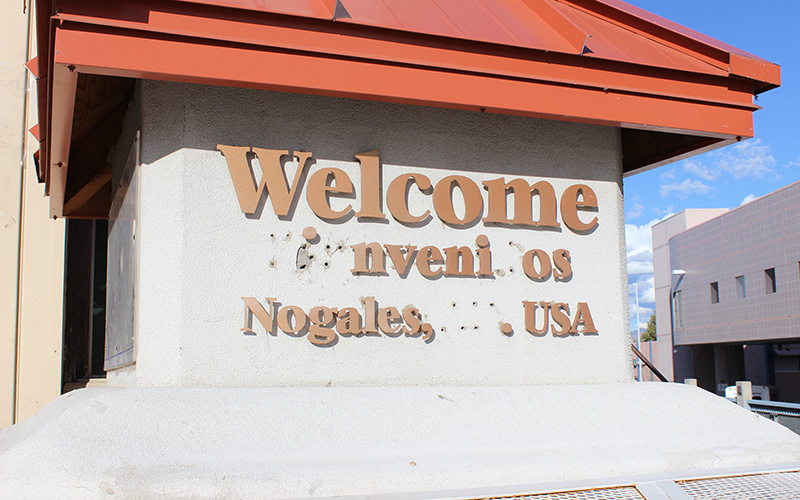
In an effort to help recruiting at understaffed Southwest border ports of entry, like Nogales, Customs and Border Protection recently brought its recruiters to southern Arizona to tour the area and see the benefits of living there. (Photo by Li Tsin Soon/Creative Commons)
WASHINGTON – In real estate, the saying goes, it’s all about location, location, location. Apparently, that same rule also applies when it comes to recruiting Customs and Border Protection agents.
Already hobbled by a burdensome, multiphase hiring process that can take up to 18 months, followed by months more of training, agency recruiters face another challenge when trying to fill vacancies on the Southwestern border – not many applicants want to work there.
“People hired, they don’t first decide to go to Nogales, they like to go to the other … what in large measure people decide are more desirable locations,” said Anthony Reardon, president of the National Treasury Employees Union, which represents CBP officers.
So, in an effort to better sell border posts to recruits, CBP is trying to sell the posts to its recruiting officers.
The agency earlier this month brought recruiters from field offices around the country to Tucson, where they took port-of-entry tours and learned firsthand the benefits that come from living and working in Arizona.
CBP said in a statement that recruiters met with “Visit Tucson, as well as county representatives, and the Economic Development Council gave briefings on all the wonderful things southern Arizona has to offer, one of which is our outstandingly low cost of living.”
See related story:
Customs rotates officers into Nogales to cope with staffing shortages
Olivia Ainza-Kramer, president and CEO of the Nogales-Santa Cruz County Chamber of Commerce, said cost of living is just one of the region’s attractions.
“If you compare the pricing with a lot of other cities, our prices are very, very competitive,” she said. “Our weather is perfect, we have all four seasons … we have the ocean really close to us, only a four-hour drive away.”
Ainza-Kramer’s favorite part of her community is how it’s still small and everyone knows everyone.
CBP said the new recruitment strategy is designed to “inform potential applicants throughout the U.S. about the important and exciting work being done by CBP officers at Southwest border locations.”
The agency said it hopes this new effort will give recruiters all the tools they need “to sell the CBP officer position in” Arizona and make it one of the more desired locations.
Reardon said that would take care of one part of a systemic problem that the union said has resulted in a 3,700-person shortage of customs officers nationwide.
Besides the cumbersome hiring process and training that can take up to 10 months to complete, Reardon said CBP has an “unbelievable failure rate with the polygraph tests.” CBP applicants fail lie-detector tests 63 to 65 percent of the time, he said, compared with an average failure rate of 28 percent for all federal law enforcement agencies, many of which employ a different type of test.
The agency acknowledges that hiring remains a problem overall – not just on the Southwestern border.
“Challenges in recruitment are, to a great extent, contingent on our rigorous hiring process, which reflects the high standards to which all frontline employees must be held,” an agency statement said.